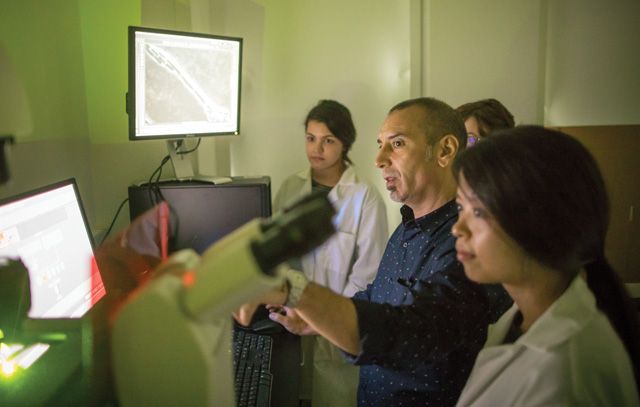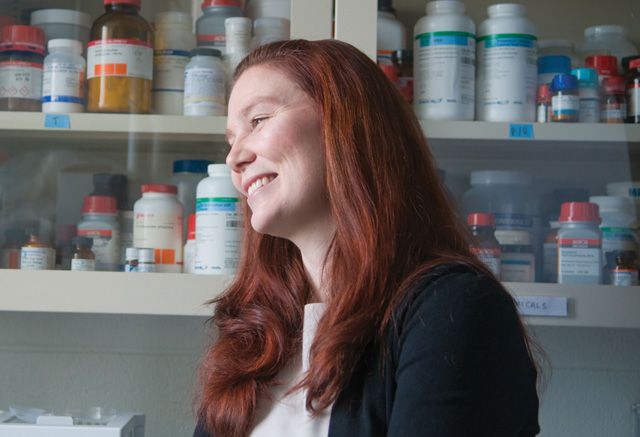Lehigh University has established a new Department of Bioengineering in the P.C. Rossin College of Engineering and Applied Science. The new Department will build upon Lehigh’s popular bioengineering undergraduate and graduate programs, which were initiated in 2002 and 2009, as well as extensive interdisciplinary bioengineering research being pursued across the Rossin College and the University.
Professor Anand Jagota, a member of the Lehigh faculty and director of the Bioengineering Program since 2004, will serve as the new department’s Founding Chair—and will assist in the University’s recently-announced search for a permanent Chair to lead the department.
The initial departmental faculty includes 17 members with academic appointments in the department and an additional 17 affiliated members. Their research is supported by the National Institutes of Health, the National Science Foundation, and the U.S. Departments of Defense and of Energy, among others. In keeping with the interdisciplinary nature of bioengineering, many of the bioengineering faculty members will have joint appointments in other departments in the Rossin College and in the College of Arts and Sciences.
According to Jagota, the formal designation as a department reflects the importance of the field, as well as its emergence at Lehigh over the past 15 years.
“The field of bioengineering was born out of a combination of elements from other well-established disciplines,” he says. “In recent years, it has developed its own language, its own tools, its own ‘gravitational pull,’ so to speak. Thus, the timing is right for Lehigh to recognize this evolution by organizing the faculty and students working in this space into a self-standing department.”
According to Jagota, advances in molecular and cellular engineering, regenerative medicine, bioinformatics, imaging and analysis, biosensors and microfluidics, computational bioengineering, and related areas have fundamentally changed the field’s ethos over the past 15–20 years.
“Today’s advances in bioengineering are coming largely from our improved understanding of molecular and cellular biology,” he said. “Contributing in this space also requires a great depth of engineering knowledge to design systems, to perform analysis and to be quantitative at this level. These developments, along with parallel advancement in computing and information science over the same time period, have made the engineering perspective even more crucial in the field of human health and healthcare.”
“The creation of the new Department of Bioengineering is an important advancement for our college and university,” says Stephen P. DeWeerth, professor and dean of the Rossin College. “Biomedicine and health are among the most important areas for sustained growth in research and education across the engineering and computing disciplines. This importance is amplified at Lehigh, as we move toward the creation of a new college focused on integrated health. The bioengineering department will form an essential conduit for interdisciplinary partnership between the two colleges.”
Through the new department, Lehigh will continue to grow its successful B.S., M.S., and Ph.D. programs in bioengineering and to expand its research in areas including biocomputation and modeling; diagnostics, sensors and devices; and materials and therapies.
“We have strong concentrations of people conducting research in devices, optics and microfluidics, and in biomaterials and biomechanics,” says Jagota, “and we are building strength in biocomputation, data, and modeling.”



